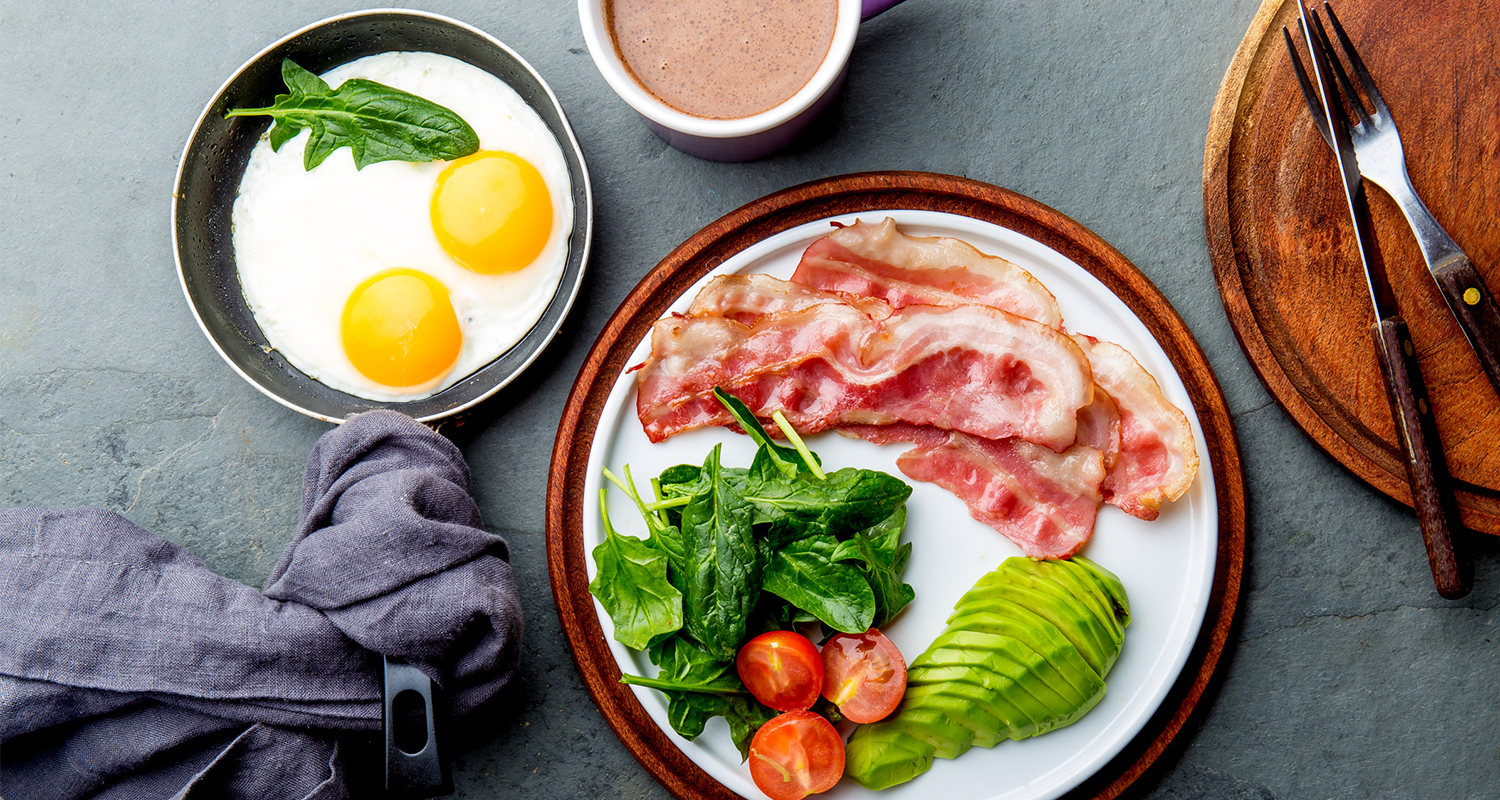Picture this: You’re on a new diet, but instead of feeling hangry and deprived, you’re brimming with energy and the weight is melting off. Welcome to the keto diet. It’s a high-fat, low-carb eating plan that Hollywood stars and athletes like Halle Berry, Adriana Lima and Tim Tebow credit for blasting away their fat.
It seems counter-intuitive — eat fat to lose fat? But that’s exactly what happens on keto. Here’s everything you should know about this diet, including tips to reach your weight loss goals and troubleshoot common problems. Before you dive in, check with your doctor before making any dietary changes.
WHAT IS THE KETO DIET?
The keto diet is short for “ketogenic diet.” It’s a high-fat diet that has the potential to turn your body into a fat-burning machine.
The keto diet changes the way your body converts food into energy. Normally, your body turns carbohydrates (think bread and pasta) into glucose for energy. Eating a lot of fat and very few carbs puts you in ketosis, a metabolic state where your body burns fat instead of carbs for fuel.[1]
WHAT ARE KETONES?
When your body can’t get glucose from your diet, your liver turns body fat and fat from your diet into molecules called ketones, an alternative source of fuel. This puts you into ketosis, aka prime weight loss mode.[2][3]
According to some metabolic experts, you’re in the state of ketosis when your ketone levels measure 0.5-3.0 millimoles per liter. The keto diet is one way to get your body to make ketones. Other ways to run on ketones include intermittent fasting and using up your glucose reserves by exercising.
BENEFITS OF THE KETO DIET
The keto diet quickly boosts weight loss because your body turns fat from your diet and your internal fat stores into ketones. And unlike glucose, ketones can’t be stored as fat because they aren’t digested the same way.
That’s surprising, right? For decades, you’ve heard that fat makes you fat. Your body is actually built to use fat as an alternative source of fuel. For most of history, people weren’t eating three square meals and snacks throughout the day. Instead, humans would have to hunt and gather their food, and they learned to thrive when there wasn’t any food available, sometimes for days on end.[4] To keep going, their bodies used stored fat for energy. Thanks, evolution.
KETO DIET BENEFITS:
- Burns body fat: When you’re on keto, your body uses stored body fat and fat from your diet as fuel. The result? Weight loss.[5]
- Reduces appetite: Ketones suppress ghrelin — your hunger hormone — and increase cholecystokinin (CCK), which makes you feel full.[6] Reduced appetite means it’s easier to go for longer periods without eating, which encourages your body to dip into its fat stores for energy. More research needs to be done in the area of appetite and ketosis, but it seems a lot of people experience reduced hunger.
- Reduces inflammation: Inflammation is your body’s natural response to an invader it deems harmful. Too much inflammation is bad news because it increases your risk of health problems. A keto diet can reduce inflammation in the body by switching off inflammatory pathways and producing fewer free radicals compared to glucose.[7] [8]
- Fuels your brain: Ketones are so powerful that they can provide a good portion of your brain’s energy needs, which is way more efficient than the energy you get from glucose. Did you know your brain is made up of more than 60 percent fat?[9] That means it needs a lot of fat to keep the engine humming. The quality fats you eat on a ketogenic diet do more than feed your day-to-day activities — they also feed your brain.
- Increases energy: When your brain uses ketones for fuel, you don’t experience the same energy slumps as you do when you’re eating a lot of carbs. When your metabolism is in fat-burning mode, your body may tap into its readily available fat stores for energy. That means no more energy crashes or brain fog. Ketosis also helps the brain create more mitochondria, the power generators in your cells.[10] More energy in your cells means more energy to get stuff done.
- Curbs cravings: Fat is a satiating macronutrient. You eat a more smart fats on keto, so you feel fuller, longer.[11][12]











